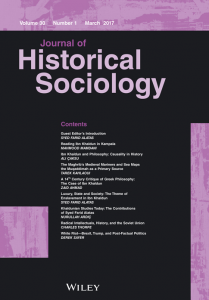Can young children give or withhold consent to heart surgery? Obstacles to innovative research

When we began to research children’s consent to non-urgent heart surgery in 2019, we were surprised by the healthcare professionals’ enthusiasm for consent with the right to refuse. In the first of our 45 interviews with practitioners and related experts, an anaesthetist said:
“As a group, we would like to be the best in the world at doing some kind of evidence-based consent that is great for patients and legally robust. We’re aiming to be amazing at it…Definitely some four-year-olds can decide whether they want [to be anaesthetised with] a mask or an injection…There are younger and older children who are very afraid. Ten years ago, we would have held them down and given them an anaesthetic…These days, we…know that there is a lot of harm from holding children down against their will. It takes away their control and it makes a lot of behavioural changes and psychological damage afterwards. [Colleagues have] changed the whole narrative around what is and isn’t acceptable to do…no one needs to have a terrible experience.”
The whole professional team agree, and they carefully prepare young children for surgery. If children as young as 4-years still actively resist the anaesthesia mask, the operation may be postponed. Children are referred for further support until they are ready to accept painful and distressing procedures because they understand and want the health benefits that surgery offers.
Heart transplants require life-long commitment, such as taking daily anti-rejection tablets. There are too few small donor hearts and practitioners repeatedly said that, when patients are aged from at least 6-years, transplants can only be performed on willing, committed children. After weeks of information, support and discussion, if a child is still unwilling, the operation would not be offered. To live with a “new heart” is a complex undertaking. A psychologist reported some young children’s profound understanding when she described explaining to a 3-year-old:
“It is a bit like when a car gets a new engine…It helped him understand why he had to take his medication because…if he didn’t put his petrol in then his engine would stop…he was very aware that this engine that he already had wasn’t working very well and that this engine might stop.”
Our research project took years to develop. My PhD in the 1980s was about parents’ consent to children’s heart surgery in two London hospitals.[i] I did not talk much to the children, not having approval from Research Ethics Committees (RECs) to do so. Many children then were given little or no information, in the hope of protecting them from anxiety and stress, so I avoided the risk of alarming them with questions. One in ten of the young patients died during or after heart surgery.
My postdoctoral research was on children’s consent, though to orthopaedic surgery because it is less dangerous and mysterious.[ii] Among the 120 interviewees, some children said of course they could give informed consent from the age of 12, 10 or, occasionally, 8-years and the adults agreed. Later we researched children with Type I diabetes who need daily insulin injections and finger-prick blood tests. The informed consent of children as young as 4-years involved them deeply understanding the nature and purpose of the procedures, risks and benefits, and alternatives including the effects of not taking insulin.[iii]
In 2016, our application for funds to research children’s consent to heart surgery was rejected. A second application succeeded and work started in November 2018. Yet the REC review took 16 months, preventing our access and observations in the hospitals until October 2019. In February 2020, COVID-19 ended our direct access, and all non-urgent surgery was cancelled. A further “obstacle”, though for the best of reasons, was that the many children aged 6- to 15-years whom we expected to be having repeated non-urgent surgery, as in the 1980s, were mainly absent. Miraculously, mortality has fallen to under one per cent, and surgery performed in the early months and years is now so successful that the children aged 6-years and over enjoy mainly healthy surgery-free lives. We continued to collect data remotely by telephone and online until 2021.[iv]
Despite the obstacles, our interviews with professionals, children and parents, an online survey with families, and children’s online discussion groups convened through children’s heart charities, yielded plenty of data, presented in six published papers so far.4 Submitting our papers met with further barriers. While some peer reviewers welcomed our papers, others raised queries, mainly about minor style points. Partly because the top clinical journals we approached are overwhelmed with submitted papers, ours were then often rejected. Our key paper “Children’s ages of consent to heart surgery” was rejected by five clinical journals, and revised each time it was resubmitted, before being accepted by Children & Society.[v]
The main though often covert obstacle and reason for rejection, especially by US reviewers, seems to be that our evidence challenges ancient traditions in medical practice, law and ethics. These still assume that children are incompetent, and no legal minor may refuse recommended major surgery. These views urgently need to be updated and reformed. The greater respect for children’s actual abilities shown by reviewers and editors of nursing, social research and childhood journals needs to spread into the leading medical and ethics journals that are delaying humane innovation and progress.
Acknowledgements
Thanks to Katy Sutcliffe and Rosa Mendizabal my co-researchers, to all the children and adults who generously took part in the research, and to the British Heart Foundation for funding.
Author
Priscilla Alderson is Professor Emerita of Childhood Studies at the Social Research Institute, University College London, UK http://iris.ucl.ac.uk/iris/browse/profile?upi=DPALD60
References
[i] Alderson, P. (1990). Choosing for Children: Parents’ Consent to Surgery. Oxford: Oxford University Press; 2023 Routledge Revivals.
[ii] Alderson, P. (1993). Children’s Consent to Surgery. Buckingham: Open University Press.
[iii] Alderson, P., Sutcliffe, K., Curtis, K. (2006). Children’s consent to medical treatment. Hastings Centre Report, 36, 25-34.
[iv] For details of project methods and reports see https://www.ucl.ac.uk/ioe/departments-and-centres/centres/social-science-research-unit/consent-and-shared-decision-making-healthcare/childrens-and-parents-consent-heart-surgery.
[v] Alderson, P., Bellsham-Revell, H., King, L., Vignesgarden, T., Wray, J. (2023).Children’s ages of consent to non-urgent heart surgery: The views of two paediatric cardiology teams, Children & Society, http://doi.org/10.1111/chso.12717.







1756-2589/asset/NCFR_RGB_small_file.jpg?v=1&s=0570a4c814cd63cfaec3c1e57a93f3eed5886c15)